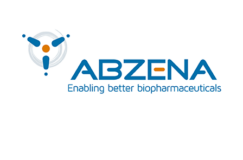Spinout News
Abzena plc, a UCL School of Pharmacy spinout company has raised £20 million in connection with forthcoming admission to AIM.
7 July 2014

Abzena, a revenue-generating life sciences company providing services and technologies that enable the development of better biopharmaceutical products, has conditionally raised £20 million by way of a placing of 25 million new shares at 80 pence per share (the “Placing Price”) to trading on the AIM market of the London Stock Exchange.
It is expected that dealings in the ordinary shares will commence on AIM on 10 July 2014 under the ticker “ABZA”. At the Placing Price, the market capitalisation of Abzena on Admission would be approximately £77.9 million.
John Burt, CEO of Abzena said: “The proceeds from the Placing and our forthcoming admission to AIM mark important milestones in Abzena’s development and provides a platform for us to grow our existing business and expand our offering as we enable our customers and partners to translate research into better biopharmaceutical products that benefit patients.
“Abzena combines a growing, high-margin service business with the potential for substantial longer term revenue streams from licences to our proprietary technologies.”
About Abzena
Abzena’s mission is to enable R&D companies to develop better biopharmaceutical products – e.g. therapeutic antibodies and proteins – with one or more of the following attributes: better efficacy, fewer side effects, more predictable quality and/or improved patient compliance.
Over 70 per cent. of the revenue of the world’s top ten selling medicines is derived from biopharmaceuticals including the world’s largest selling drug, HUMIRA®. Worldwide revenue from biopharmaceutical products was $169 billion in 2012 and this figure is forecast to exceed $220 billion in 2017
Abzena is a revenue-generating life sciences company (FY2014: £5.8 million) 1with a range of complementary services and technologies (covering biopharmaceutical immunogenicity assessment, antibody and protein engineering, manufacturing cell line development and bioconjugation), which provide two sources of income:
= High-margin fee-for-service income from a broad customer base which includes the majority of the top 20 biopharmaceutical companies2
= Milestone payments and/or future potential royalties from the development and commercialisation of products created with the Group’s technologies with more than 30 licence and option agreements currently in place and five customers’ products undergoing clinical development for a wide range of diseases, including cancer,autoimmune and inflammatory diseases
The market which Abzena serves is growing, driven by an increase in outsourcing of R&D by major biopharmaceutical companies, as well as by biotechnology companies looking externally to access expertise and skills. The US market for applied research and preclinical drug development, the areas in which Abzena operates, is estimated at $9.6–$11.5 billion; the majority of Abzena’s revenues are derived from providing services and access to its technologies to US customers. http://www.abzena.com
1.The Group’s aggregated revenue for FY2014 of £5.8 million is calculated as if Antitope Limited had been acquired on 1 April 2013. Abzena’s consolidated revenue for FY2014 was £3.8 million.
2Genetic Engineering and Biotechnology News, Top R&D Spenders of 2013 (March 2014) were Roche, Novartis, J&J, Merck, Pfizer, Sanofi, GSK, Lilly, AstraZeneca, Amgen, BMS, Takeda, Abbvie, Bayer, Celgene, Novo Nordisk, Gilead Sciences, Daiichi Sankyo, Astellas and Merck KGaA.
UCL School of Pharmacy
The UCL School of Pharmacy is one of the most highly rated pharmacy schools in the UK and has a long tradition of academic and research excellence. Founded by the Pharmaceutical Society of Great Britain in 1842 it has successfully evolved to meet the changing demands of the education and pharmacy sectors for 170 years, most recently merging into University College London, one of the UK’s highest ranking institutions. Although drawing extensively upon its heritage and tradition the School continues to embrace change and develop has been a key factor in its longevity and success.
Industry partnership, through consultancy and collaborative research, has long been a strong component of the School’s research effort. Additionally, School researchers have founded a number successful spin-out companies such as Polytherics as a means to progress clinical development of its world class research to the benefit of patients and society.